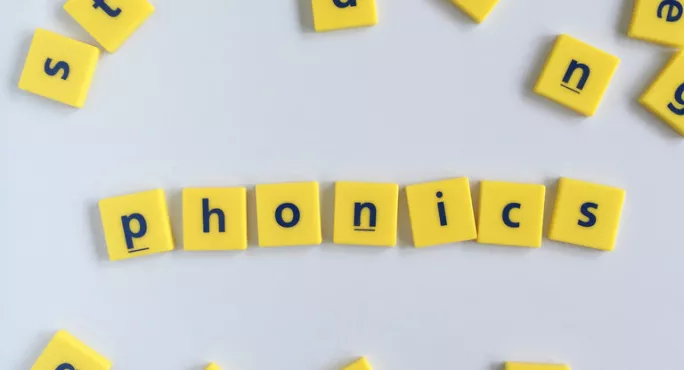- Home
- Why we need to talk about phonics
Why we need to talk about phonics

Perhaps the biggest casualty of the “reading wars”, or more specifically the fight over whether to teach phonics, is that it robs a lot of time from potential discussions about how to teach phonics well.
And considering every primary school in England teaches phonics, that seems like a conversation we should be having, says professor Julia Carroll who is a reader in Child Development and Education at Coventry University and one of the world’s leading authorities on phonics.
“Pretty much all schools in the UK teach phonics and we’ve known for at least 20 years that phonics is the most effective way to teach early reading and early literacy,” Carrol tells this week’s Tes Podagogy podcast (listen below). “The government guidance has been pretty consistent on that as well: it is very explicit and very specific, that we should be teaching phonics.
“So I think we really do need to move on and talk about how we can best teach phonics and how phonics fits into other elements of reading as, well as key phonics approaches.”
Listen to the podcast below
A good example of a debate that needs to be had - and a topic that needs more research - is how far schools shifting away from the prescription of their chosen phonics approach impacts outcomes, says Carroll.
“The main schemes schools used are synthetic phonics and they have very similar kind of focus,” she explains. “The idea is that you introduce a few letters and teach kids those letters and then start teaching them how to segment and blend using those letters, and then you introduce more letters, and you repeat the process like this.
“One of the main differences between the schemes, though, is how many letter-sound combinations are taught. Some schemes teach rarer combinations and some really focus on the most common ones.
“I think the thing with the systematic synthetic phonics is [also that] as soon as you start going away from the manual, it starts to be less systematic and that can make it less effective because it makes it more difficult. There are lots of places in which we do want teachers, obviously, to add their own personality and so on but when it comes to phonics schemes, probably not so much. It’s a very structured system for a reason.”
Read more:
- The reading wars: three of the world’s leading reading experts discuss the war between phonics and whole-world teaching
- Why is phonics so crucial? Professor Anne Castles offers her view
- The problem with the phonics screening check
Differentiation and how far phonics teaching should be whole-class are other topics that we have good research on, but that would be good to discuss more at a school level, says Carroll.
“Research-wise, I think differentiation does show better improvements and I think that’s probably again because phonics is such a systematic process. Before you start putting together words with four sounds, you have to be able to put together words for two sounds, so you have to work on that child’s individual level really,” she explains.
“So phonics is one of those areas where small group teaching with children, pushing them on from the level they’re at, seems to be the most effective factor.
“Often schools will use whole-group teaching to maybe introduce a new letter sound, to talk about some sounds and relationships, and then use the small groups to reinforce that, and work at the level of the individual children, so that the more advanced children can be using more complex words and using a wider variety of words, and the children working at a lower level can be supported to do the less complex words and everyone can move along.
“In other areas, differentiation can cause more individual difference in the classroom, that the top kids really get on but the kids working behind that lead group really fall behind, but actually it seems like in phonics all the groups do better by having a bit of differentiation.”
Watch the interview here:
And what about when phonics should stop? The phonics screening check may seem like a completion mark for those that pass it, but it should not be seen like that, believes Carroll.
She explains that those that do not pass the check will obviously need more input on phonics, but that the many children who pass and will go on to become independent readers and not seem like they need phonics - they will still need it in their toolbox and to be reminded to use it.
“The idea of having phonics in the background is a good idea,” she says. “Traditionally, people have talked about when children are reading books to encourage them to use multiple cues to try and work out unknown words, but we now know that phonics is the most effective way of working out unknown words, and it doesn’t always work but it’s the method the children should try first.
“In the older year groups, you’re not necessarily teaching them explicit phonics rules in class so much but you are encouraging them to use their phonics knowledge all the time when they’re reading and spelling.”
The podcast also touches on spelling, types of phonics and how to spot whether a child is actually reading, or has just memorised the words.
To listen to the podcast use the player above, watch the video above, or type ‘Tes Podagogy’ into your podcast platform.
Keep reading for just £1 per month
You've reached your limit of free articles this month. Subscribe for £1 per month for three months and get:
- Unlimited access to all Tes magazine content
- Exclusive subscriber-only stories
- Award-winning email newsletters



